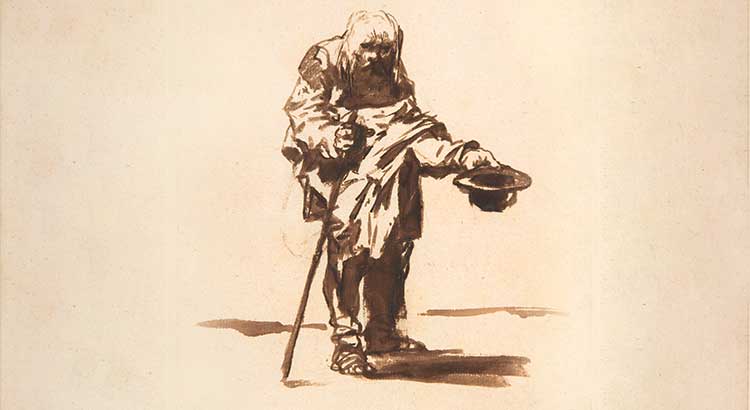There is a fable, written by Tolstoy, about a man who, while returning home from work, passed in front of a church where there was a poor man begging. The beggar asked the worker, could you please take me with you? I need a shower and a bed. This man decided to take him home, since he had an empty room at his house.
When he arrived home, he explained to his wife that the man needed a place to sleep and that was why he had decided to bring him home since “we have a room available.” His wife did not agree with his decision and got angry with the beggar. She treated him in an uncharitable way in order to make him leave the house as soon as possible.
Curiously, when the beggar was mistreated by the woman, he began to become small and ugly. When he was treated well by the husband who cared for him, the man began to grow in size and beauty. Tolstoy explains that the beggar was actually an angel and therefore could only live in a kind and loving atmosphere and that is why he grew when he was treated well and he got smaller when he was mistreated.
The moral of this fable is that people are better in an atmosphere of love and joy than in an atmosphere of mistreatment and selfishness. People grow to be good people in a loving and generous environment while people become rough in an atmosphere of hatred and selfishness.
Precisely for this reason, Our Lord has left us the commandment of love of our neighbor: because it is the best for everyone. Living in an environment where love reigns does us good, makes us grow spiritually and makes others grow as well, because love is contagious.
On the contrary, lack of love, selfishness and hatred hurts us and diminishes us as a person. Just as love is contagious, selfishness is also contagious. Selfishness and hatred create a selfish and dehumanizing society, because it only transmits those values that are contrary to our nature.
This is so, because true love leads to self-renunciation, sacrifice, generous dedication, forgiveness, among other things. These are things that make us better people and improve the society in which the one who practices charity lives; whatever that society may be: family, religious community, school, work, country, etc. It also counteracts the selfishness and hatred of those around us, because as St. Paul says, the true way to combat evil is not by adding more evil, but on the contrary by doing good (cf. Rom 12:21).





